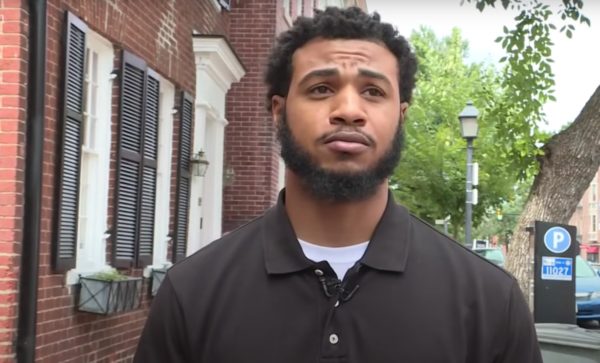A federal appeals court ruled Thursday that Virginia sheriff’s deputies violated a Black man’s constitutional rights when they arrested him in April 2017 for refusing to identifying himself.
On Feb. 4, the 4th U.S. Circuit Court of Appeals partially overturned a lower court’s ruling that held that the arrest of George Wingate by Stafford County deputies was legitimate. The deputies invoked a local statute that requires people to show identification to authorities for reasons involving public safety.
But Chief Judge Roger Gregory wrote in Thursday’s unanimous decision that the factors that led deputies to suspect Wingate of criminal activity were “not enough” to warrant requiring him to show identification.

Early in the morning of April 14, 2017, when the then-28-year-old Wingate was working as a rideshare driver, he pulled over to the side of the road on Jefferson Davis Road at 2 a.m. after his check engine light came on.
“He looked under the hood of his car with a flashlight to see if anything was wrong. Finding nothing evidently amiss, he left the car hood up and engine running and reentered his car to try to diagnose the problem using the Auto Doctor application on his smartphone,” according to Wingate’s brief filed with the Fourth Circuit.
A deputy pulled up behind Wingate and asked if he needed help. Wingate declined.
When Deputy Scott Fulford asked Wingate to show identification, the situation escalated.
Fulford later said he became suspicious of Wingate because he was wearing dark clothing and stepped out of his vehicle when he pulled up. Fulford also said there had been thefts in the area.
A dash camera captured the exchange between Wingate and Fulford.
“Am I free to go?” Wingate asked. “No,” deputy Fulford responded.
“Am I being detained? If I’m not being detained then I’m free to go,” Wingate said.
“You’re not free to go until you identify yourself to me,” said Fulford. When Wingate refused to show identification, Fulford called for backup.
Fulford and another deputy arrested Wingate. Criminal charges were later dropped.
“Police officers are in the habit of being obeyed,” said Wingate’s attorney Victor Glasberg. “And sometimes they don’t take it very well when they’re not. That’s what got him riled up.”
In 2018, Wingate filed a federal suit in Alexandria against Fulford, alleging his arrest for refusing to show identification violate his Fourth Amendment rights. Lieutenant Dimas Pinzon, the second deputy involved in Wingate’s arrest, was later added as a defendant. The court ruled the deputies’ actions were reasonable under the circumstances.
On Thursday, the three-judge panel overturned the ruling and sent the case back to the lower court. The deputy “first began to suspect criminal activity when a man that he intended to help approached him in dark clothing. That is not enough,” Gregory wrote in the decision.
Stafford County Commonwealth’s Attorney Eric Olsen said the decision does not invalidate the law requiring citizens to show authorities identification if its warranted by public safety concerns.
It’s not clear if the ruling will permit Wingate to seek damages against the deputies. According to the judges, the deputies are at least partially immune from being sued because they took action under the good faith belief that the statute permitted them to require Wingate to show identification, another instance of qualified immunity.


